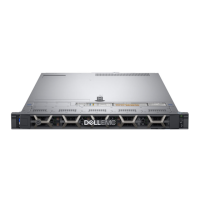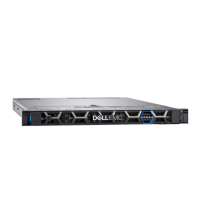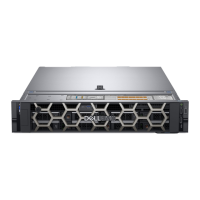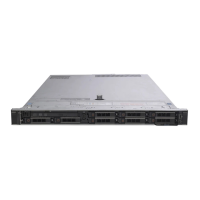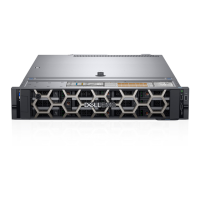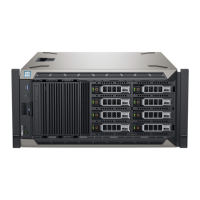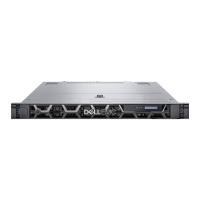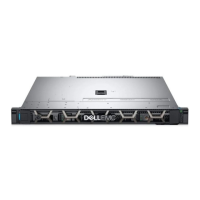5. Set the controller card boot parameter:
/opt/lsi/perccli/perccli /c0 set bootwithpinnedcache=on
The boot parameter of the controller card is defined.
Results
You have verified that the disks are in the UGood (unconfigured, but good) state and
that the controller card boot parameter is set to on. You can now create virtual
devices.
Create virtual devices for HDD with PERCCLI
Use PERCCLI to create virtual devices (VDs) for HDDs on a VxFlex Ready Node
server. The devices can be used as part of a Storage Pool or to provide caching.
Before you begin
Ensure that the PERCCLI disk utility is installed.
Before using PERCCLI, ensure that your working directory is /opt/lsi/perccli/.
If it is not, run: cd /opt/lsi/perccli/
You need to create one VD for each HDD. The VDs for HDDs are configured with
Direct IO, write-back, and read-ahead enabled.
Procedure
1. Log in to the server.
2. Create a VD that can be accelerated using a utility such as RFcache, or that will
not be accelerated at all:
/opt/lsi/perccli/perccli /c0 add vd type=raid0
drives=<EID>:<Slt> direct wb ra pdcache=off
Example:
/opt/lsi/perccli/perccli /c0 add vd type=raid0 drives=32:6
direct wb ra pdcache=off
where
<EID>
and
<Slt>
are the Enclosure ID and Slot ID values, identified in a
previous step.
Output similar to the following is displayed:
Controller = 0
Status = Success
Description = Add VD Succeeded
Results
The VD was created successfully.
After you finish
Continue with the procedure that referred you to this topic.
Preparing Disks
58 Hardware Configuration and Operating System Installation Guide - ESXi Servers

